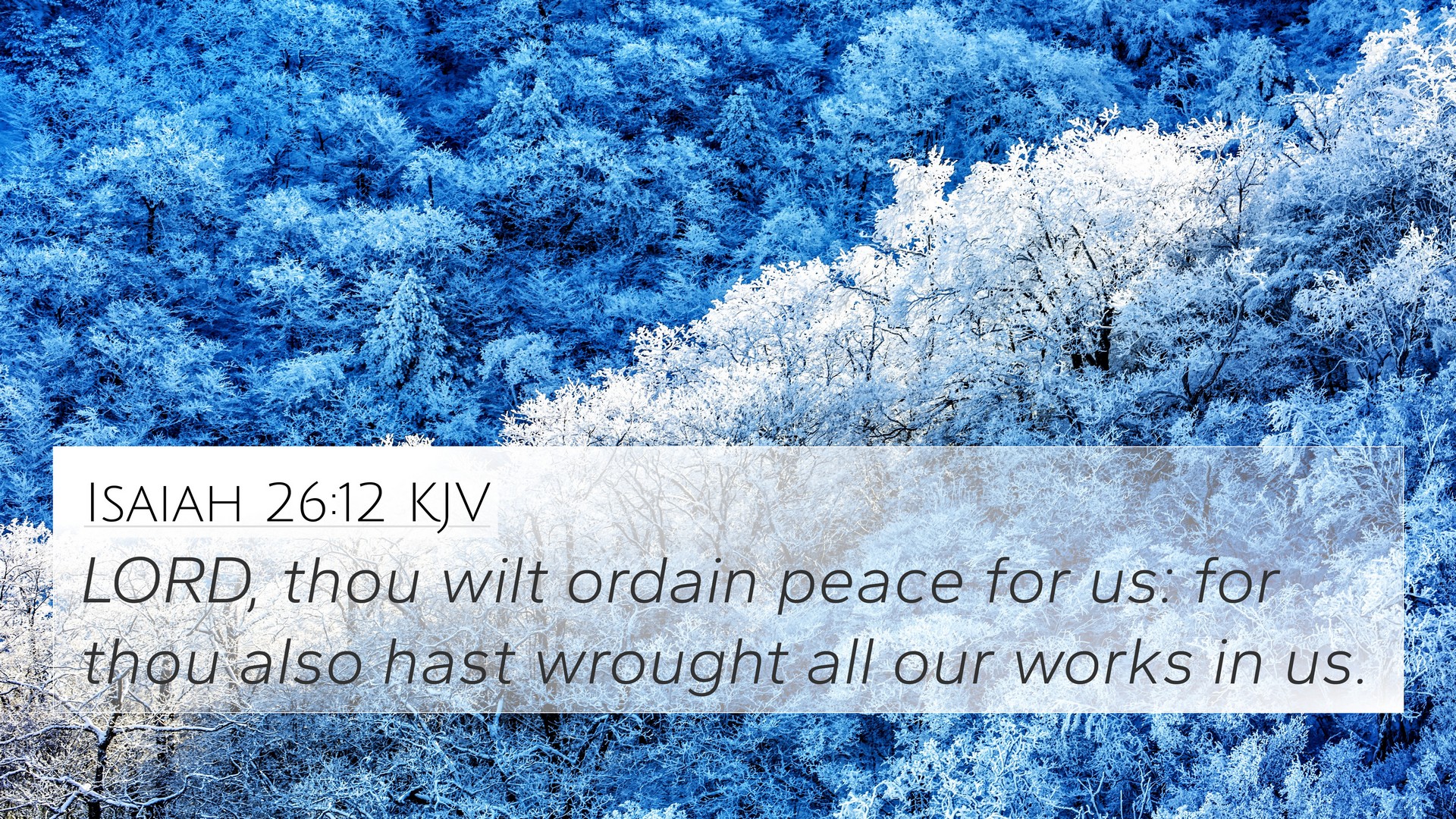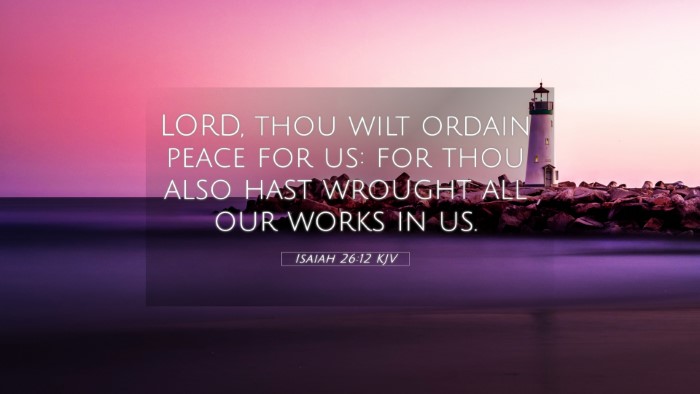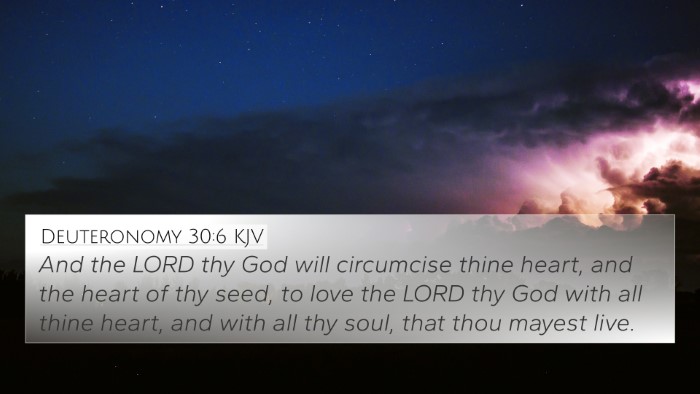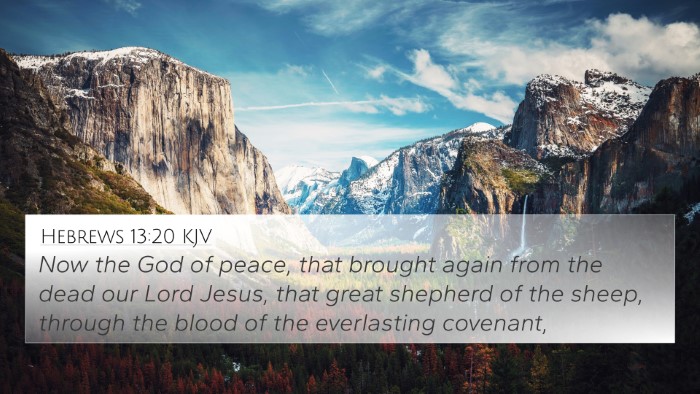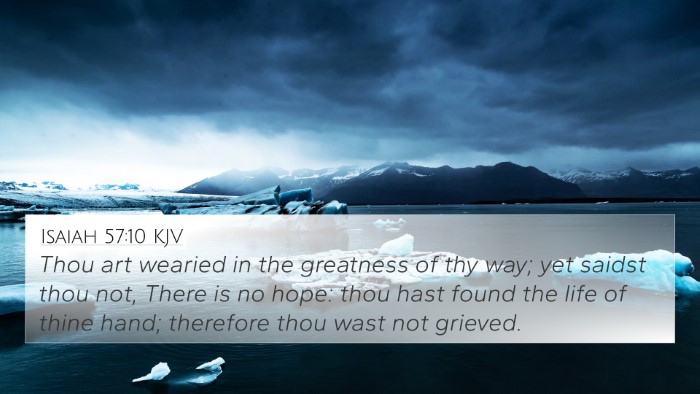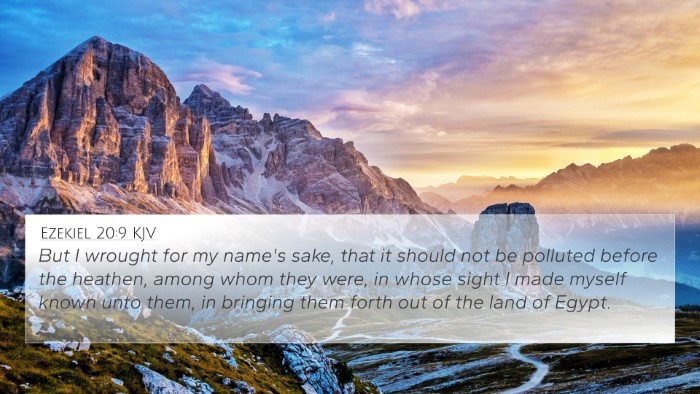Understanding Isaiah 26:12
Isaiah 26:12 states: "Lord, you establish peace for us; all that we have accomplished you have done for us." This verse encapsulates a profound truth about the sovereignty of God and His role in granting peace and success to His people. In our exploration of this verse, we will delve into various interpretations and the theological implications drawn from it, amalgamating insights from prominent public domain commentaries.
Verse Context and Meaning
In the context of Isaiah's prophecy, this verse expresses a reliance on God for peace amid trials and tribulations. The passage highlights the belief that all achievements stem from divine intervention, aligning with a broader theme of trust in God's plans.
Key Interpretations
- Divine Sovereignty: The phrase implies that God is ultimately in control of both peace and success, reminding believers of His authority over all occurrences in life.
- Human Dependency: It underscores the need for humans to recognize their limitations and lean on God for sustained peace.
- The Gift of Peace: Peace is portrayed not as a human achievement but as a divine gift, reinforcing the gracious nature of God.
Comparative Bible Verse Analysis
This verse resonates with several other biblical passages that reinforce the themes of God's provision, peace, and human dependence on Him:
- Philippians 4:7 - "And the peace of God, which surpasses all understanding, will guard your hearts and your minds in Christ Jesus." This verse echoes the notion that God’s peace is not just a mere absence of conflict but a profound state of tranquility provided by Him.
- John 14:27 - "Peace I leave with you; my peace I give you." This reflects the personal assurance of God’s peace, connecting to the peace discussed in Isaiah.
- 2 Thessalonians 3:16 - "Now may the Lord of peace himself give you peace at all times in every way." This supports Isaiah's claim that peace is divinely instituted.
- Psalm 29:11 - "The Lord gives strength to his people; the Lord blesses his people with peace." This verse further emphasizes God’s role in granting peace and strength.
- Romans 15:33 - "The God of peace be with you all.” This illustrates the pervasive presence of God's peace in the lives of believers.
- Proverbs 16:7 - "When a man's ways please the Lord, he makes even his enemies to be at peace with him." This highlights the reciprocatory nature of a life aligned with God leading to peace.
- Isaiah 9:6 - "For to us a child is born... and his name will be called Wonderful Counselor, Mighty God, Everlasting Father, Prince of Peace." Here, God’s promise of peace is embodied in Jesus Christ.
Thematic Connections Between Bible Verses
Isaiah 26:12 invites an exploration of the interconnectedness of biblical themes, particularly concerning divine peace and human reliance:
- Inter-Biblical Dialogue: The ideas presented in Isaiah concerning peace are echoed and elaborated upon throughout both the Old and New Testaments.
- Old and New Testament Links: The continuity of God’s promises of peace from Isaiah to the teachings of Christ demonstrates an enduring theological truth.
- The Role of Righteousness: The associative link between righteousness and peace can be observed in various scriptures, reflecting that living in accordance with God's will leads to peace, as suggested in Isaiah 26:12.
Tools for Bible Cross-Referencing
To deepen understanding of Isaiah 26:12, one may use various tools for Bible cross-referencing:
- Bible Concordance: A useful resource for identifying key terms and their connections across the scripture.
- Bible Cross-Reference Guide: Guides that facilitate the discovery of related verses based on themes or keywords.
- Cross-Reference Bible Study: Methods which utilize cross-referencing to draw insights from linked scriptures.
- Comprehensive Bible Cross-Reference Materials: Tools that can enhance one's understanding by facilitating deeper thematic studies between different scripture passages.
Conclusion
Isaiah 26:12 serves not only to affirm God's peace and providential role in the lives of believers but also acts as a pivotal verse inviting cross-references with other scriptures that elucidate the divine assurance of peace. By exploring and linking these scriptures, one gains a richer and more comprehensive understanding of biblical theology. The interconnected nature of the Bible highlights the central themes of God’s grace, peace, and the importance of human reliance on His authority and care.
